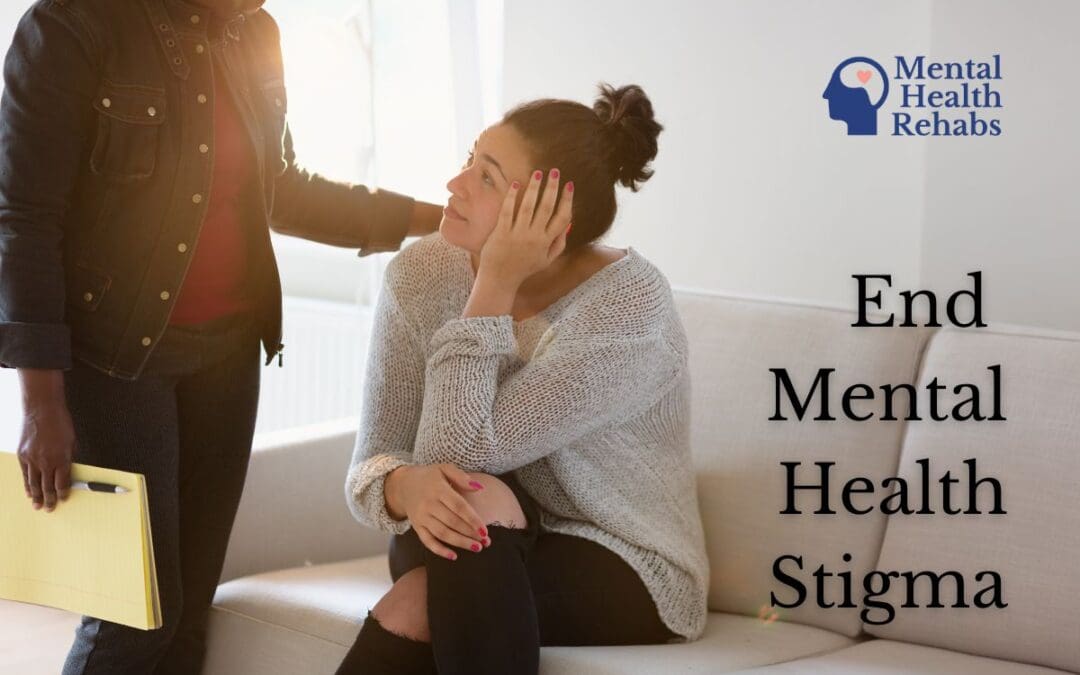Despite major headways in understanding and acceptance of mental illness, stigmas against mental health continue to be a prevalent issue today. Historically misunderstood, mental health — and by extension, mental health treatment — is rife with misconceptions and has led to the topic being viewed negatively, with fear or shame.
Such attitudes surrounding mental health issues hurt both individuals as well as society as a whole. Similar to the stigma surrounding drug addiction, when society attaches shame to a condition or affliction, a person is a lot less likely to ask for help — and it could end up costing them their life.
Together, we can take small steps to end mental health stigma and make the world a more inclusive place where people feel comfortable asking for the help they need. Here are X ways how to reduce stigma and discrimination and be an advocate for people with mental illness.
Understanding the Three Types of Mental Health Stigma
The term “stigma” originated in Greece, where it referred to a physical mark cut into the skin to designate someone as undesirable, such as a slave, criminal, or a person afflicted with certain diseases. In modern definitions, stigma is a negative stereotype or label that can lead to discrimination, exclusion, and prejudice.
Mental health stigma refers to negative attitudes, beliefs, and stereotypes society holds toward individuals with mental health conditions. This stigma can manifest in various ways based on the type of stigma: public, system, or self.
Public Stigma
At the highest level is public stigma. This refers to the stereotypes and prejudices that society as a whole holds against those with mental health conditions. This type of stigma can manifest as discrimination, avoidance, or even hostility toward individuals with mental health issues. For example, someone might believe that individuals with depression are simply “lazy” or that those with schizophrenia are dangerous.
Systemic Stigma
Systemic stigma exists within institutions and policies and also perpetuates discrimination through them as well. It can look like unequal access to healthcare, workplace discrimination, or even biased legal proceedings. An example of systemic stigma is when employers hesitate to hire or promote individuals with disclosed mental health conditions, fearing that they may be less productive or reliable.
Self-Stigma
Then there is mental health stigma on an individual level, known as self-stigma. This is when a person internalizes the negative stereotypes and prejudices they encounter. This type of stigma can severely impact self-esteem and self-worth, leading to feelings of shame and inadequacy. Someone experiencing self-stigma may avoid seeking treatment because they believe they are undeserving or beyond help.
5 Ways to End Mental Health Stigma
Mental health stigma can be a significant barrier to seeking help and receiving necessary mental health care. When individuals are not hindered by stigma, they are more likely to engage fully in their treatment. This leads to better outcomes and a higher quality of life for those living with mental health conditions.
Educating society about mental health can lead to greater empathy and understanding. This can strengthen relationships and communities, as individuals learn to support one another through difficult times.
Here are a few ways everyone can help eradicate stigma to create an environment where people are more willing to reach out for support.
Conscious Diction
Choose your words carefully: You could unwittingly be contributing to negative stereotypes through your choice of words. Use non-stigmatizing language when talking about mental illness and avoid using labels when describing a person with an ailment.
Educate & Advocate
Educational programs in schools, workplaces, and communities are one of the best ways to dispel mental illness myths and normalize asking for help. If you hear someone around you misrepresenting mental illness, don’t be afraid to speak up! A one-on-one interaction might be the perfect opportunity to educate someone on this important topic.
Media Representation
Encourage responsible media portrayal of mental health issues. Highlight positive stories of recovery and resilience to counteract negative stereotypes. Celebrate public figures who openly discuss their mental health challenges, as they can influence societal attitudes and inspire others to seek help.
Support inclusivity
Encourage open conversations about mental health to reduce fear and ignorance. This can be through creating safe spaces where individuals can share their experiences without judgment. Or participating in peer support groups and community initiatives can help combat isolation and self-stigma.
Legislation & Policy Changes
To help fight systemic prejudice, advocate for policies and politicians that protect the rights of individuals with mental health conditions, ensuring equal access to healthcare, employment, and legal representation.
Ending mental health stigma is a necessity for the well-being of individuals and society as a whole. If you’re struggling with a mental illness, talk to a mental health professional who can help you address your issue and find effective ways to deal with the stigma you might be facing.

